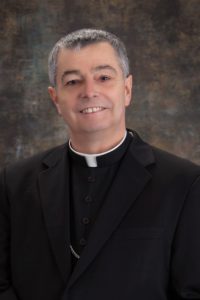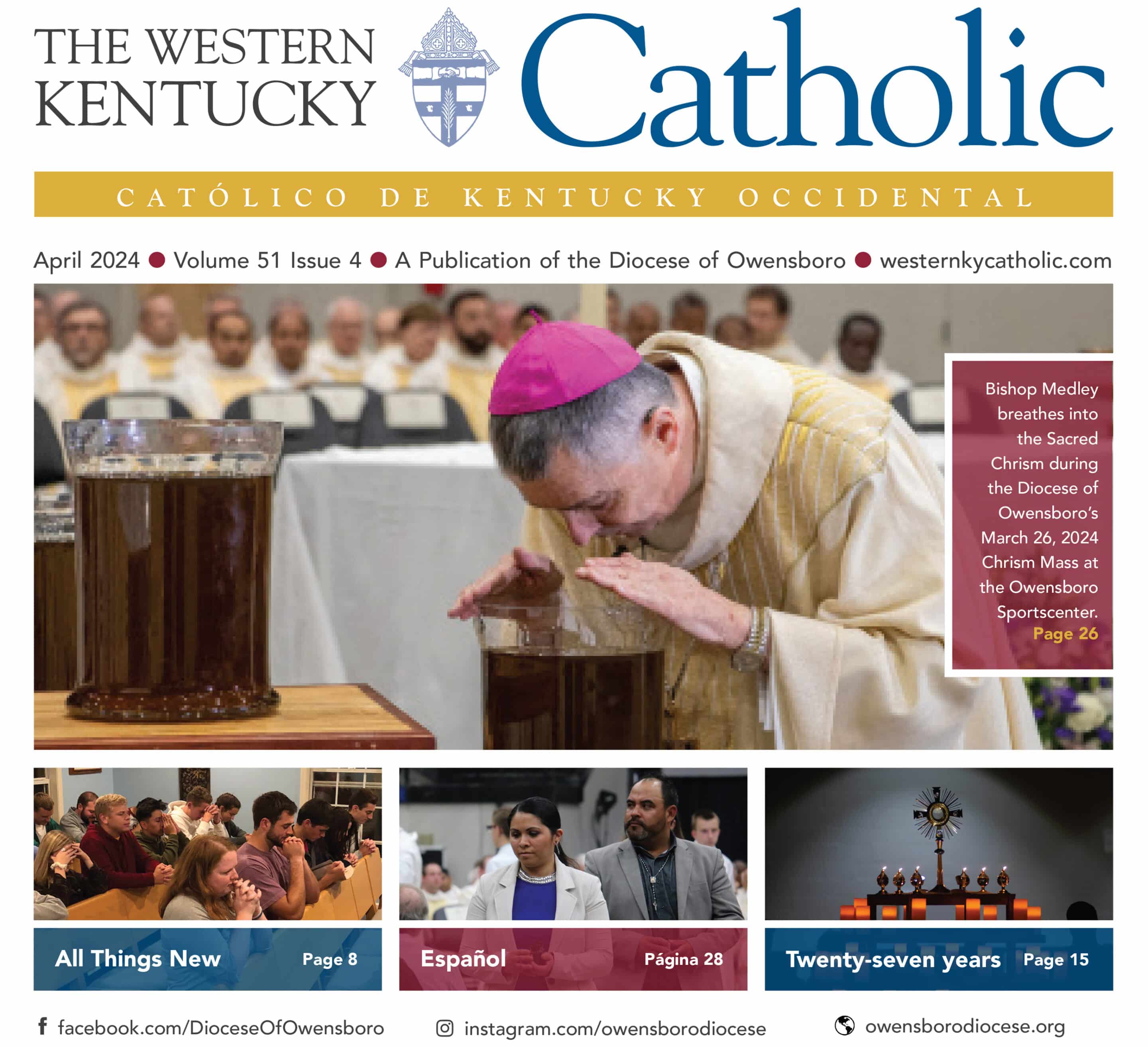Conversations with students reveal much about Church

Bishop William F. Medley
My Dear Sisters and Brothers in Christ,
Every year most of us know one or several students graduating from college, high school, or middle school. We might even observe a kindergarten graduation. It is my honor to attend four graduations every year, at Brescia University, Trinity High School in Whitesville, St. Mary High School in Paducah, and Owensboro Catholic High School.
Through the school year I visit every Catholic school to celebrate Mass with the students and community. In the primary grades I can often visit individual classrooms for brief visits where I am peppered with profound questions, like “How old were you when you knew you wanted to be a bishop?” That’s an easy one to answer: “I was 57 when Pope Benedict sent word to me that I was to be a bishop.”
But questions and answers with students are not limited to the youngest children. In my second year as bishop in 2011 I experimented with what I call “Senior Conversations.” I visited the senior classes of our three Catholic high schools knowing that for most of them the structure they have known since kindergarten would give way to college or workforce. I reminded them that in the future no one would line them up to go to Mass each week, no one would likely afford them class time to go to confession, and their future classes were not as likely to begin or end with prayer. My experiment was successful and apart from the years with pandemic restrictions I have enjoyed these visits annually.
In my senior conversations I also tell them this will likely be their last compulsory visit with a bishop. I am interested in their thoughts and questions as they make one of life’s biggest changes. The ground rules are simple: they may ask me anything so long as the question is respectful; they may voice opinions different than Church teaching so long as they will respectfully hear my reply.
Sometimes, if a class is slow to get going, I will pose a couple of starter questions. What is it about your identity as a Catholic that makes you most proud, which is most reassuring to you? Conversely, what is it about the Church or its teaching that gives you pause, or that you struggle to accept or understand?
To the former question I will hear that young adults prize the sense of community and belonging that the Church offers. Some will comment that their families have always been Catholic going back uncounted generations. I will hear of a comfort found in the sacramental life of the Church. The experience of the Church as a voice for justice is valued, most especially the Church’s defense of all human life as sacred – especially life in the womb. The retreats and days of recollection that the schools have provided are memorable as are summer camp experiences at Gasper River Catholic Youth Camp.
The disenchantments within the Catholic Church are not that different from those expressed by Catholics in general. I hear again of the deep wound and scandal the Church has experienced because of the tragedy of sexual abuse in parishes and schools. I welcome the opportunity to again acknowledge the Church’s terrible failure in this regard, but point to the great reforms we have implemented to assure that children and youth are safe. I assert my belief that today there is not a safer place for children and youth than a Catholic church or institution. Yet, we admit that sin does not end and there will be failures in the future.
Reflecting their generation, some are confounded by the Church’s teaching about LGBT+ questions. Frankly, for the most part, this generation has “moved on” with this question and cannot grasp the Church’s hesitancy to do the same. Though I strive to articulate the foundation of the Church’s teaching, the culture has redefined the questions. Now certainly there is not unanimity on these questions and sometimes I detect some hard feelings within student classes. I stress that none of us have all the answers and our dialogue must always proceed with charity and compassion. We can accept differences without condemnations.
Artificial contraception and in-vitro fertilization are sometimes discussed. Some students are well-informed that these questions are still debated among Catholic scientists and theologians.
The place of women in the Church is often presented. In the last half century, women in our society have made tremendous gains and young women in particular question the exclusion of women from ordained ministry. For the most part the young women questioning the Church’s practice are tolerant but many are impatient to see signs of some change.
When I have had these senior conversations each year I find myself wishing that I could gather the same groups together one year or five years or 10 years later. It would surely be interesting to hear the same voices when they have grown still more in wisdom and grace.
Sincerely in Christ,
Most Reverend William F. Medley
Diocese of Owensboro
Originally printed in the August 2022 issue of The Western Kentucky Catholic.


